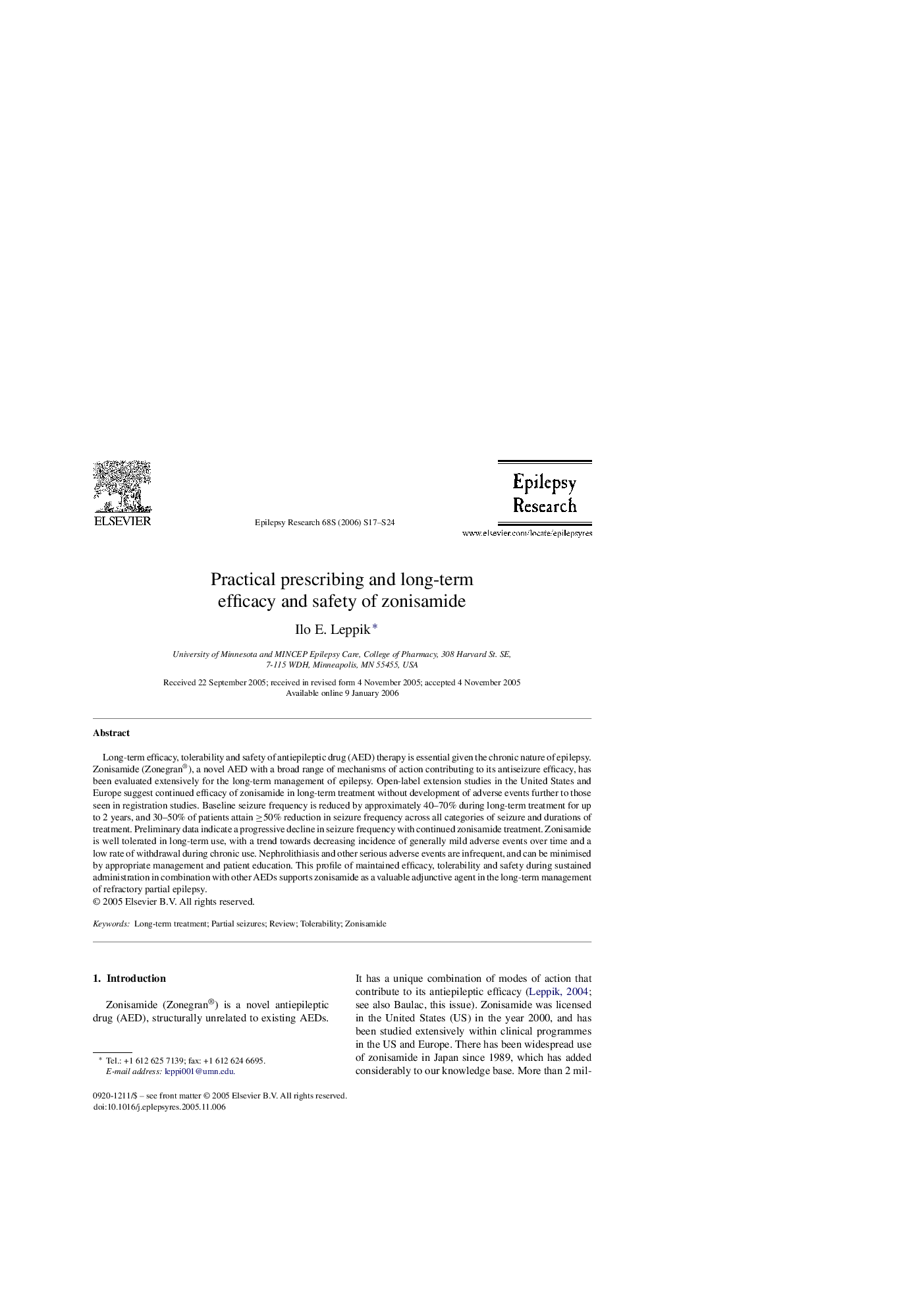| Article ID | Journal | Published Year | Pages | File Type |
|---|---|---|---|---|
| 3053411 | Epilepsy Research | 2006 | 8 Pages |
Long-term efficacy, tolerability and safety of antiepileptic drug (AED) therapy is essential given the chronic nature of epilepsy. Zonisamide (Zonegran®), a novel AED with a broad range of mechanisms of action contributing to its antiseizure efficacy, has been evaluated extensively for the long-term management of epilepsy. Open-label extension studies in the United States and Europe suggest continued efficacy of zonisamide in long-term treatment without development of adverse events further to those seen in registration studies. Baseline seizure frequency is reduced by approximately 40–70% during long-term treatment for up to 2 years, and 30–50% of patients attain ≥50% reduction in seizure frequency across all categories of seizure and durations of treatment. Preliminary data indicate a progressive decline in seizure frequency with continued zonisamide treatment. Zonisamide is well tolerated in long-term use, with a trend towards decreasing incidence of generally mild adverse events over time and a low rate of withdrawal during chronic use. Nephrolithiasis and other serious adverse events are infrequent, and can be minimised by appropriate management and patient education. This profile of maintained efficacy, tolerability and safety during sustained administration in combination with other AEDs supports zonisamide as a valuable adjunctive agent in the long-term management of refractory partial epilepsy.
